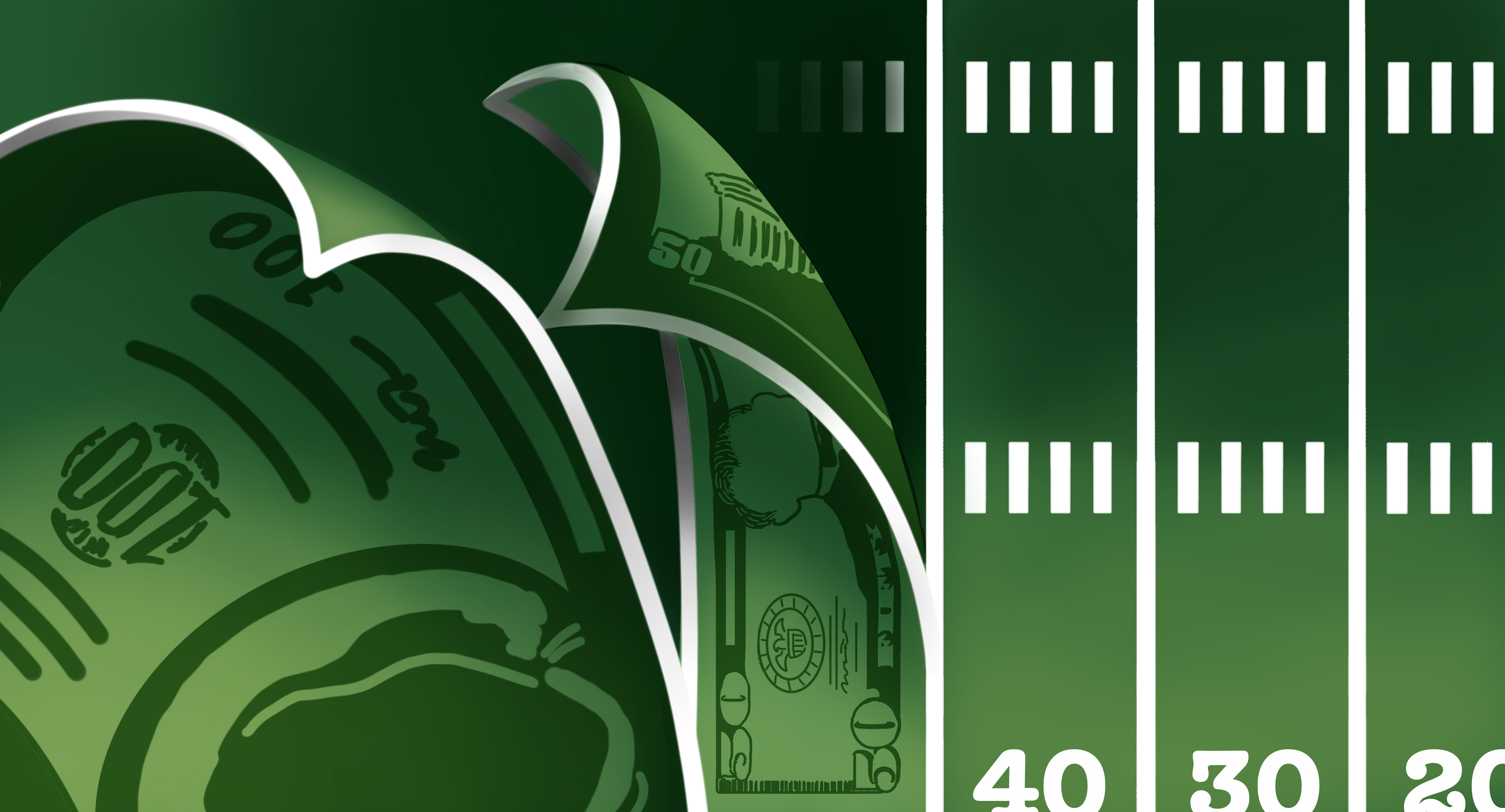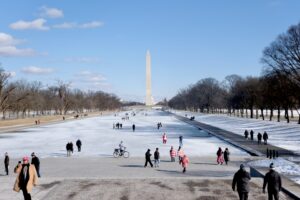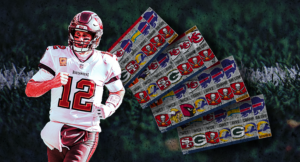On Super Bowl Sunday, four-time Super Bowl champion tight end Rob Gronkowski will attempt a field goal live on-air as part of a promotion by FanDuel Sportsbook to give out $10 million in free bets. This is just the latest promotional stunt from the company, which forms part of the up-and-coming multibillion-dollar legal sports betting industry now available in 36 states as well as Washington, D.C., which legalized the practice for those 18 and older in 2019 after a Supreme Court ruling the year prior declared that states can create their own gambling laws.
Many D.C. sports bettors, however, will be stuck on the sidelines for Gronkowski’s highly anticipated promotion, as D.C. has placed far heavier restrictions on how people can bet on sports compared to other states, resulting in many sports fans in the District missing out on an enhanced sports watching experience—the entertaining and often rewarding world of sports betting.
The major platforms that accept sports bets (sportsbooks) such as FanDuel, BetMGM, and Caesars Sportsbook—names that have become synonymous with legal sports betting across America—are restricted to physical locations at Audi Field, Nationals Park, and Capital One Arena, respectively. Additionally, their online apps only allow for bets in D.C. to be placed within two blocks of their books’ physical location.
The restrictions in place have a disproportionate impact on college-age students. Sports bettors must be 21 years old or older to enter any bars that act as sportsbooks in the District. D.C. also forbids betting on any game involving a collegiate team from a D.C. university, including Georgetown, meaning that interested bettors must find ways to circumvent these restrictions to bet for (or against) the Hoyas.
Conor H. (MSB ’25) overcomes the District’s restrictions on sports betting apps by outsourcing his bets to his brother who lives in New York. “Back home in New York I could just use FanDuel and other companies’ apps, but being in D.C. it’s not legal,” Hyland said. “It definitely makes it more difficult to bet because if I wanted to place anything through those accounts I would have to get my brother to do it.”
Students who circumvent geographic restrictions to access the major sportsbooks are still faced with the regulations of other states. Georgetown’s close proximity to Virginia—a state which does allow betting through the major apps no matter your location—opens up the opportunity for students to gamble by simply crossing Key Bridge and placing bets across the Potomac. However, most states that have legalized sports betting, including Virginia, have set the minimum gambling age to 21. “Most people I know who are under 21 will sign up through their parents’ account and just tie it into their own email,” Hyland said, illustrating the lengths to which students go to get around betting laws in D.C. and other states.
The only online sportsbook currently available throughout the District is GambetDC, a betting platform operated by the D.C. Lottery. As part of the city’s process to legalize sports betting, the city controversially contracted the book to be the sole citywide online sports betting platform, leading to a sports gambling monopoly in most parts of D.C. Since its launch in May 2020, the system has been plagued by problems, including geolocation issues as well as an embarrassing outage during last year’s Super Bowl when GambetDC’s iOS app went down for the entirety of the game and users with Apple devices were unable to place bets during the biggest game of the year.
GambetDC’s biggest issue, however, stems from the bets themselves. GambetDC consistently provides odds that are worse for gamblers than the major sportsbooks, turning potential sports bettors away from the platform in search of greater returns on their bets. The Voice’s analysis of single-game bets for NBA and NHL games on Jan. 27 and 28 revealed that FanDuel, BetMGM, and Caesars Sportsbook on average have a house edge of about 4.75 percent of money wagered. GambetDC, however, has an edge of about six percent on all wagers, meaning that GambetDC’s odds are set to allow the company to pocket, on average, six percent of all wagers as revenue. This results in GambetDC providing worse odds for any given wager when compared to its Vegas counterparts, and thus worse returns for a winning bet. Despite GambetDC’s poor odds being a point of criticism since its inception, the service has maintained its uncompetitive model in the hopes that it will generate increased revenues for the city.
The difference between GambetDC and the Vegas sportsbooks only grows when looking at bets placed on long-term sporting outcomes. For example, for wagers placed on which team will win this year’s NHL championship, Vegas sportsbooks keep 24.9 percent of the money wagered on NHL “futures,” with the rest of the money going towards paying out winning bets. GambetDC, on the other hand, pockets a staggering 38.4 percent of those bets, meaning that there is an even greater financial incentive for people to place bets using the major sportsbooks. These problems as a whole contribute to GambetDC being a mere afterthought to most sports bettors in the District, if any thought at all. When asked about the platform, Hyland remarked that he didn’t even recognize it. “I’ve never used it,” he said.
Ultimately, GambetDC’s failures have contributed to it making just half of the revenue in 2022 of the commercial sportsbooks in the District despite their location restrictions.
Little progress has been made toward creating a better sports betting experience in the District, even with GambetDC’s bad reputation and the dismal state of D.C. sports gambling laws. In October, at-large D.C. council member Elissa Silverman introduced legislation to allow the major sportsbooks to operate throughout the entirety of the District, ending the monopoly held by GambetDC. Silverman, however, lost reelection in November, stalling the legislation pending reintroduction this year. As a result, D.C. sports bettors are ultimately condemned to continue making tedious journeys to Maryland, Virginia, and sporting arenas downtown to bet on sports for the foreseeable future.




